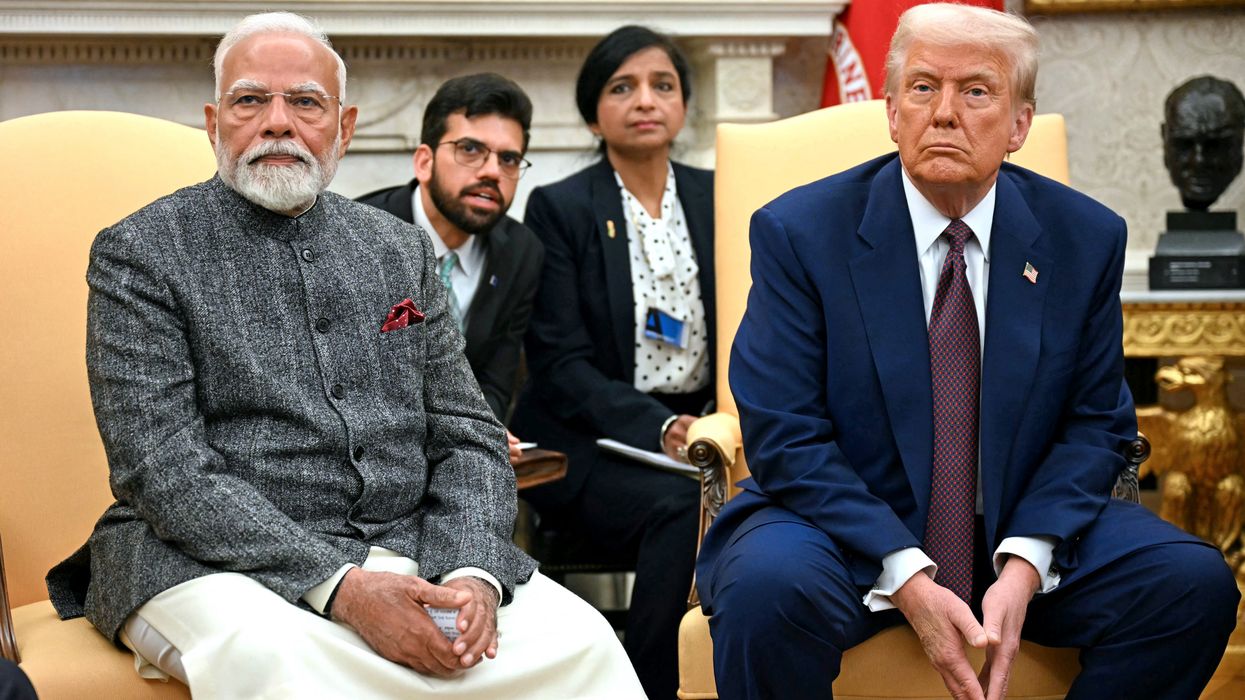THE FBI is investigating an Aug. 11 drive-by shooting that targeted a California activist with close ties to Sikh separatist leader Hardeep Singh Nijjar, who was fatally shot last year in a killing that Canadian prime minister Justin Trudeau has said could be linked to India.
In an interview, Satinder Pal Singh Raju, of Woodland, California, said FBI agents on Thursday (22) came to speak with him and a friend who was driving the truck when they and another passenger were attacked on Interstate 505 South in Yolo County on their way back from a late dinner in Vacaville.
Nijjar was killed in June 2023 outside his gurdwara, a Sikh place of worship, in Surrey, British Columbia. That killing, and Trudeau's suggestion of possible Indian government involvement, triggered a diplomatic crisis between the countries.
Speaking through an interpreter, Raju said a white car pulled up to the left of their truck, then fell back behind them before pulling up alongside them again. That was when the first bullet was fired.
"With the first shot, I ducked down," he said. "But then I heard more gun shots fired." He said he immediately thought of Nijjar, saying "this is how Hardeep Singh Nijjar had been assassinated and the whole picture of the scene went through my mind."
As they attempted to escape the gunfire, their truck skidded and veered off the road into a ditch, said Raju. He and his two friends fled into a nearby field and hid behind a haystack while they called 911. Police officers later told him they located at least five shell casings.
The FBI's Sacramento office confirmed it is collaborating with the California Highway Patrol "in support of the investigation" into the shooting.
A spokesman for the California Highway Patrol confirmed the shooting occurred, but declined to provide details and said the investigation is ongoing.
In the same month as Nijjar's killing, the FBI foiled an alleged assassination attempt against Gurpatwant Singh Pannun, another prominent Sikh separatist with dual citizenship in Canada and the US.
The US Justice Department has charged Indian national Nikhil Gupta with trying to arrange Pannun's murder at the behest of an Indian intelligence official.
Gupta pleaded not guilty and is awaiting trial in New York.
Four Indian nationals in Canada are facing charges of murder and conspiracy in the death of Nijjar.
India has denied involvement in both incidents, and it was not clear if there is a connection between the drive-by shooting involving Raju and those earlier incidents.
The Indian Embassy in Washington did not respond to a request for comment on Friday (23) about the recent shooting in California.
In the days and months after Nijjar's killing, the FBI and the Canadian Royal Mounted Police privately warned at least seven Sikh activists that their lives could be in grave danger, without specifying the source of the threat.
Raju said he was not among those who received such calls.
Earlier this month, Reuters reported that threats and harassment against Sikh community leaders, including elected officials, has persisted in the United States and Canada since Nijjar's death.
Raju is involved with the organization Sikhs for Justice, an advocacy group co-founded by Pannun that organizes non-binding referendums around the world to urge India's Punjab state to secede from India and carve out an independent state called Khalistan.
The movement led to a violent insurgency in India's Punjab state in the 1980s and 1990s before it was crushed by Delhi.
The Aug. 11 shooting occurred two weeks after Raju had returned from Calgary, Canada, where he helped organize a referendum that drew the participation of an estimated 55,000 members of the Sikh community, according to Pannun.
In 2019, India declared Sikhs for Justice an unlawful association, citing its involvement in extremist activities. Pannun and its members deny these allegations.
Raju is not as well known as Pannun internationally, but he said he is active with organizing referendums.
He said he does not have enemies, and suspects the shooting was motivated by a desire to stoke fear in those supporting the Khalistan movement.
"They want to stop the Khalistan referendum," he said. "But this attack on me and the death threats is not going to deter me from continuing the campaign."
(Reuters)













